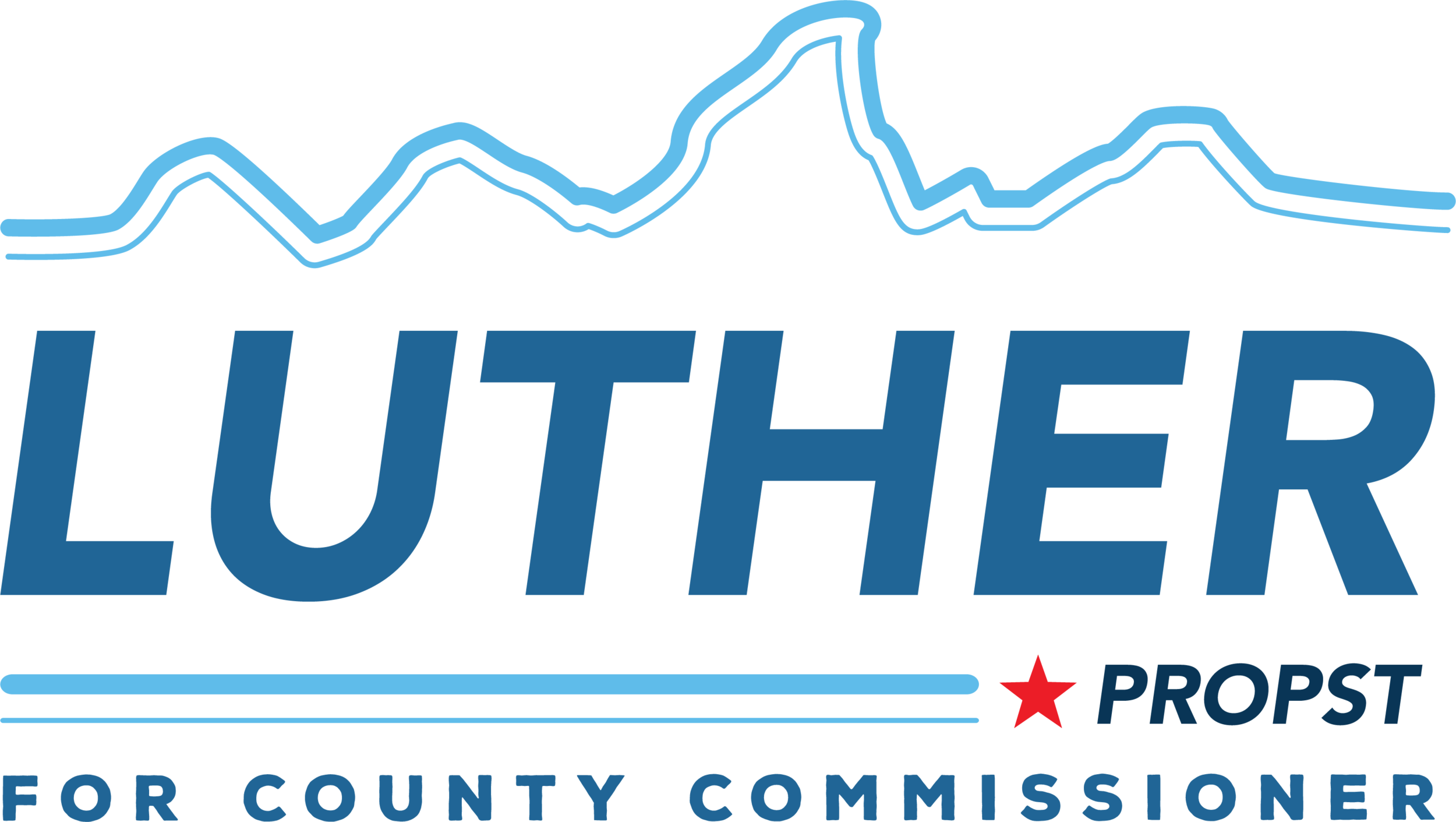My First Two Months as a County Commissioner
Swearing-in of Teton County officials on January 7, 2019.
It’s been an educational and rewarding two months since I began serving on the Teton County Board of County Commissioners. There’s a steep learning curve to understand the county’s procedures and traditions while getting up to speed each week on a wide variety of issues facing Jackson Hole.
As challenges are faced and progress treks along, I’d like to keep you informed with quarterly updates. Let’s dive into the first one.
Productive ‘Retreats’
The most productive events thus far have been two “retreats.” First, the county officeholders held an all-day retreat to discuss shared priorities and begin developing a work plan for the next two years. This strategy session laid the foundation for a joint retreat with the County Commission and the Town of Jackson Mayor and Town Council last week that produced some key decisions.
Prioritizing Human Services
First, the town and county agreed to make the funding of critical human services the No. 1 priority of the next few years. With a county-approved contract to produce a plan, I anticipate a close partnership among the county, town, and nonprofit human-service providers that will ensure a healthier, tighter-knit community.
SPET Vote for November
Second, residents of Teton County will have another opportunity to vote on funding a critical capital project or service this year. I’m pleased that the commission and council agreed unanimously to advance a SPET measure for November 2019.
I encourage you to get involved with the discussions on what the SPET should be. There are a number of priorities that I plan to examine and put forth for discussion, including water quality, wildlife crossings, pathways, and new commuter buses.
My recent run-in with Bill Nye the Science Guy.
Stronger Partnerships
The most important single lesson from the first couple of months: Nearly everything the county does is built upon partnerships, and those partnerships can be complex.
U.S. agencies manage 97 percent of the land in Teton County, while our state legislature often passes laws that undermine the decisions made by our 12 elected officials in the county. With nearly half the population of Teton County living in the Town of Jackson, the decisions made by its Town Council also have wide-ranging impacts on the county. Not to mention, we have a wonderful and active nonprofit sector that contributes mightily to every aspect of our local quality of life.
One of my goals is to better foster teamwork among the many entities affecting the well being of our residents, wildlife, and public land.
Consequences from Cheyenne
The most consequential issues for Teton County since early January have played out not in the County Commission chambers, but in Cheyenne:
Loopholes in Subdivisions
The state legislature passed a bill that allows dramatic exceptions to our zoning and subdivision ordinances, under the guise of “family subdivisions.” I join most Teton County residents in supporting the notion that local ranchers should be able to spin off a lot for family members; however this new law will be 90 percent loophole, allowing large-scale subdivision of land throughout the county. We still have much analysis to do to understand the impacts.
Exemption for the Classical Academy
The legislature also passed a bill (not yet signed by the Governor) to exempt the Jackson Hole Classical Academy from local land-use regulations. The impact of this new law is hard to predict – it’s not clear what role, if any, the Wyoming School Facilities Commission plays in permitting private schools.
While there’s lots of confusion surrounding this bill, I will work with the other County Commissioners and staff to continue to ensure that Teton County treats development applications for private schools equitably and responsibility.
Barriers to Managing Livestock
Lastly, the legislature passed a bill that creates barriers to the county managing livestock grazing on county, state, or private land. This is another perplexing law that will only complicate efforts for the county to work with federal and state agencies, private landowners, and other partners to protect public land, public health, and general welfare in Teton County.
The clear lesson from these bills is that Teton County must work to get more in tune with the legislature and better communicate the unique circumstances of our county. We face tremendous pressure for growth and development; have a highly constrained base of private land with which to work; and depend on an economy that thrives when we protect wildlife and preserve our unique mountain character.
I’m still able to get out from time to time.
Just Getting Started….
As I get up to speed, stay tuned for future reports on the county’s efforts to provide housing for its workforce, protect local wildlife and water quality, and address our growing traffic congestion while maintaining our community character.



